Publications
Articles, publications, books, tools and multimedia features from the U.S. Institute of Peace provide the latest news, analysis, research findings, practitioner guides and reports, all related to the conflict zones and issues that are at the center of the Institute’s work to prevent and reduce violent conflict.
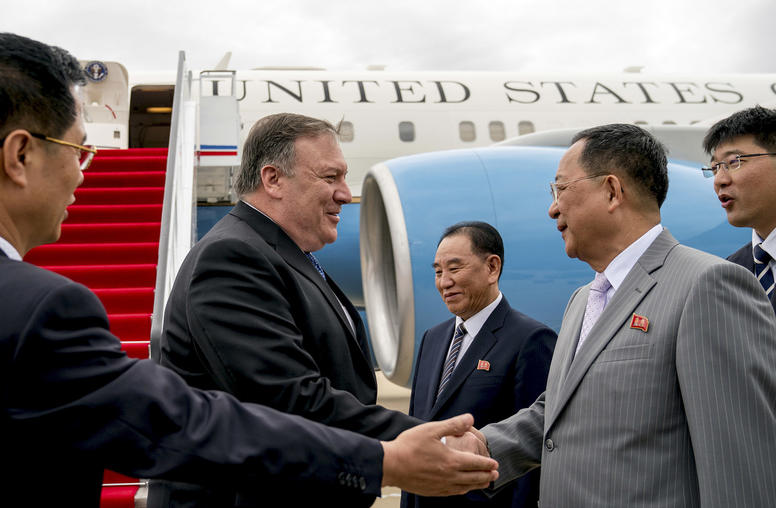
U.S.-North Korea talks just broke down. Here’s what might happen next.
Pyongyang and Washington walked away from the negotiating table in Sweden this past weekend — with divergent statements on the first working-level meeting to be held since negotiations broke down at the February summit between President Trump and Kim Jong Un in Hanoi.
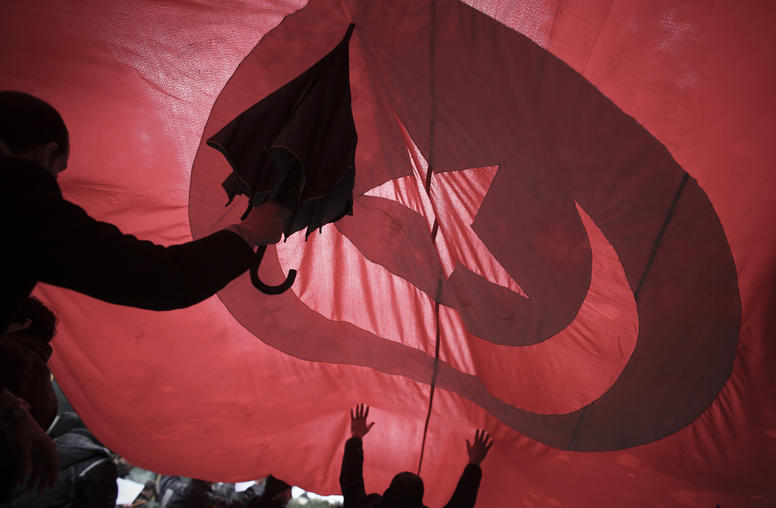
Tunisia’s Split Parliamentary Vote Could Force Unconventional Alliances
Tunisia’s busy election season continued October 6 with parliamentary elections, the country’s third legislative vote since the 2011 uprising that ousted longtime dictator Zine El Abidine Ben Ali. Only a few weeks ago, voters went to the polls for first-round presidential elections. The results of that vote demonstrated Tunisians’ disenchantment with the ruling establishment. This past Sunday’s vote saw a host of new parties and movements voted into parliament, further complicating the formation of a new government. USIP’s Leo Siebert discusses who could form a ruling coalition and how the parliamentary elections could impact the second-round presidential polls on October 13.

Scott Worden on Afghan Elections and the Peace Process
A week and a half after Afghan presidential polls, the results remain unclear. But, we do know that turnout was historically low, largely due to dire security conditions. Meanwhile, with the peace process stalled, USIP’s Scott Worden says the upsurge in U.S. military operations against the Taliban is a “pressure tactic, not a victory strategy.”
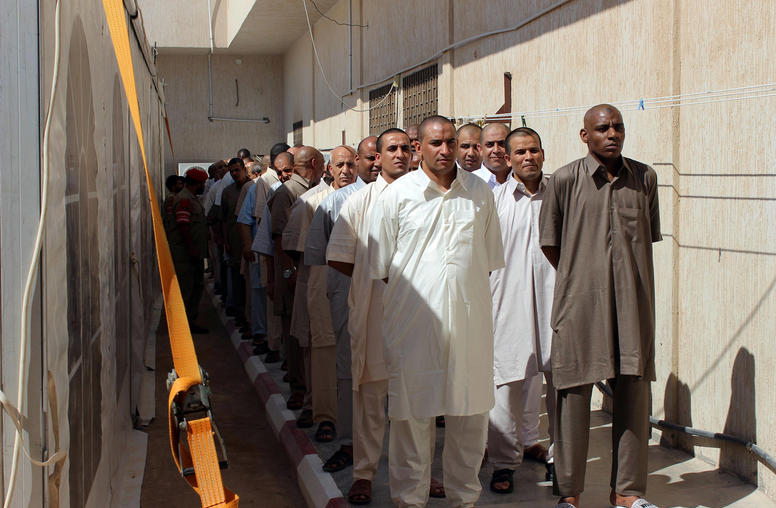
Managing the Secure Release of Sensitive Detainees in Libya
During the 2011 uprising that ousted dictator Muammar Gadhafi, revolutionary fighters in Libya rounded up large numbers of Gadhafi loyalists and detained them in prison facilities and makeshift detention centers around the country. The release of such high-profile detainees, either after they have been acquitted of crimes or served their sentences, is a sensitive political issue. This report examines the domestic and international laws and standards governing the secure release of these detainees and provides a number of policy ideas for addressing the shortcomings of Libya’s current release procedures.
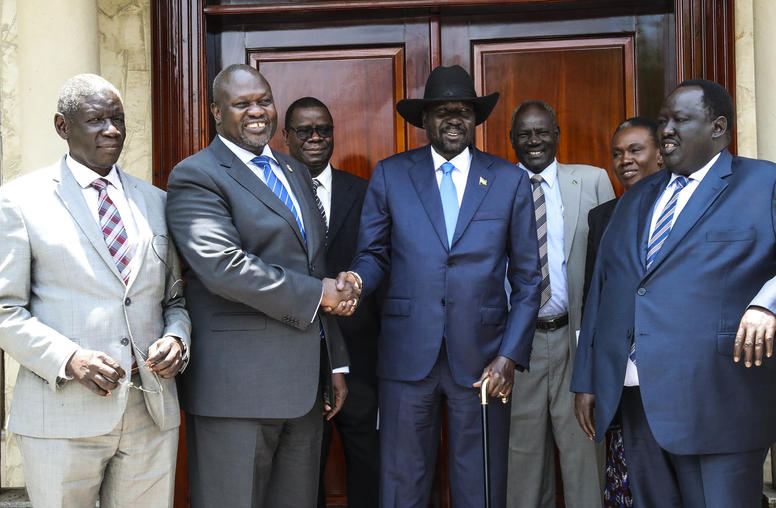
South Sudan: Hope for the Best, Plan for the Worst
With little more than a month left before a new transitional government is set to assume power in South Sudan, efforts to keep the latest peace agreement on track are becoming more urgent, even as most key pre-transition deadlines have been missed and the political will of the belligerents remains in doubt. Given these circumstances, efforts to support the current process remain vitally necessary and thorough planning for the worst-case scenarios is also desperately needed in case South Sudan’s fragile peace collapses.

Local Cross-line Coordination in Syria
Throughout the eight-year-long conflict in Syria, the movement of people and goods—including vital foodstuffs, medicines, equipment, and fuel—has often been severely restricted by periods of prolonged fighting. Yet in many areas, local arrangements, historical circumstances, and key actors have facilitated trade and movement across the lines of conflict. This report examines four cross-line areas in Syria and draws lessons for how these local dynamics might affect the resolution of the larger conflict and these communities in the long term.

Steve Hege on the Latest in Venezuela and Colombia
The crisis in Venezuela and increasing tensions between the Colombian government and the Maduro regime threaten the security of the region and the implementation of Colombia’s 2016 FARC peace accord. USIP’s Steve Hege discusses recent obstacles to implementation of that accord and how the U.S. can support a democratic transition in Venezuela.
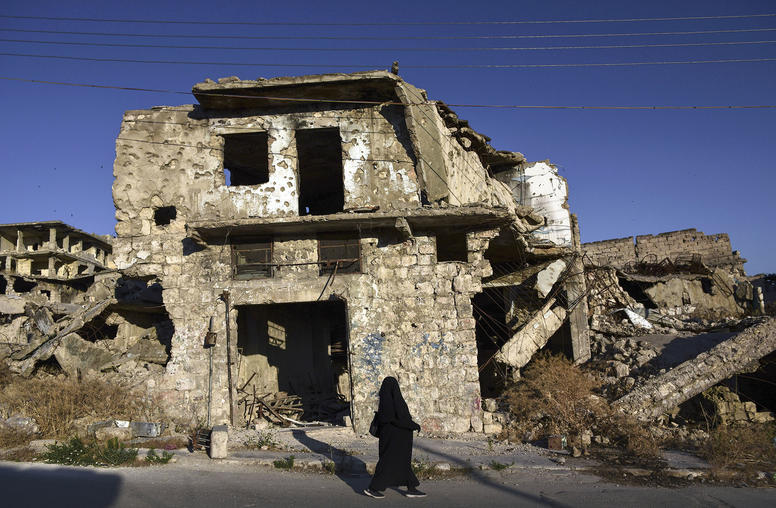
The U.S. ‘Cannot Avoid or Ignore’ the War in Syria
A new, congressionally mandated study on Syria policy urges the United States to maintain a military presence and sanctions pressure against the Assad regime, and to help build alternative governance in areas beyond the regime’s rule. The bipartisan Syria Study Group, appointed by Congress, stresses that ISIS in Syria remains a potent threat to the region and to U.S. national security. The Syria Study Group discussed its report at USIP, which at Congress’ direction facilitated the group’s work.
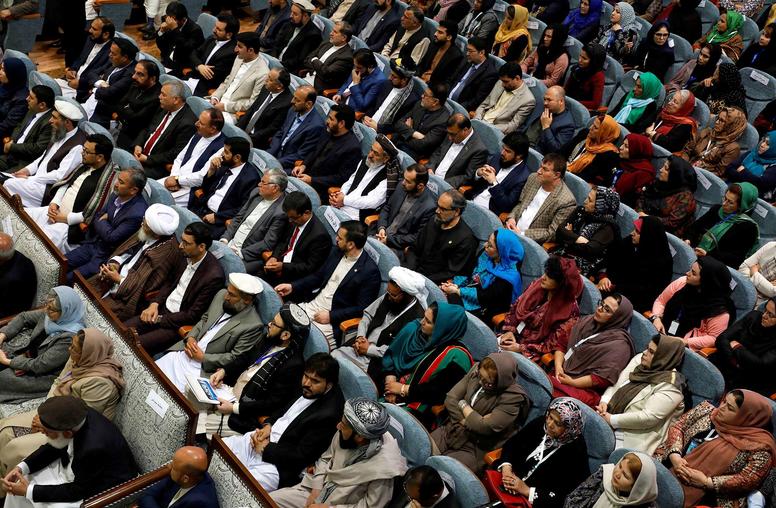
Loya Jirgas and Political Crisis Management in Afghanistan: Drawing on the Bank of Tradition
Many times over the past century, Afghan political elites have utilized a loya jirga, or grand national assembly, when they have needed to demonstrate national consensus. Based on traditional village jirgas convened to resolve local disputes, loya jirgas have been used to debate and ratify constitutions, endorse the country's position and alliances in times of war, and discuss how and when to engage the Taliban in peace talks. In light of the growing political uncertainty in Afghanistan, this report examines the strengths and weaknesses of the loya jirga as an institution for resolving national crises.
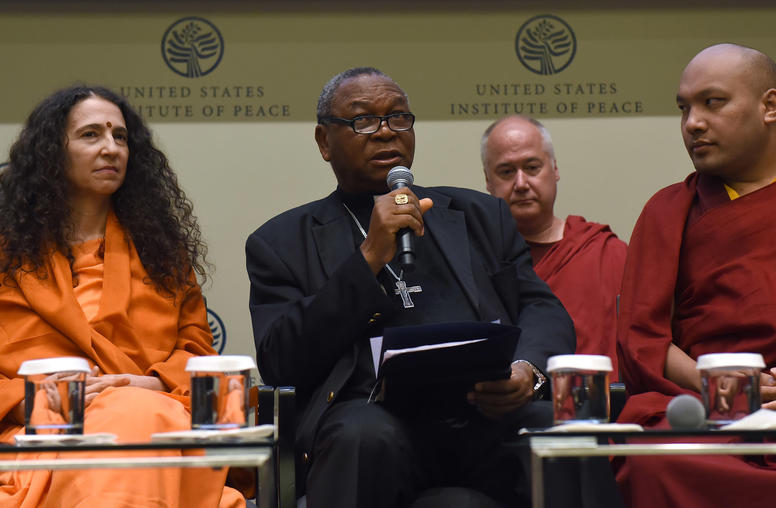
To Defend Religious Freedom, Try Peacebuilders’ Strategies
News headlines in recent months report attacks on places of worship in lands as disparate as Northern Ireland, Syria and Ethiopia. Governments and civil society organizations have expressed rising concern over violence and government restrictions against religion—a concern that was visible in July when nearly 1,000 people gathered at a State Department conference to advance religious freedom. At that conference, some discussions offered a useful idea: that activists and governments might better protect religious freedom by borrowing tactics from specialists in conflict resolution.